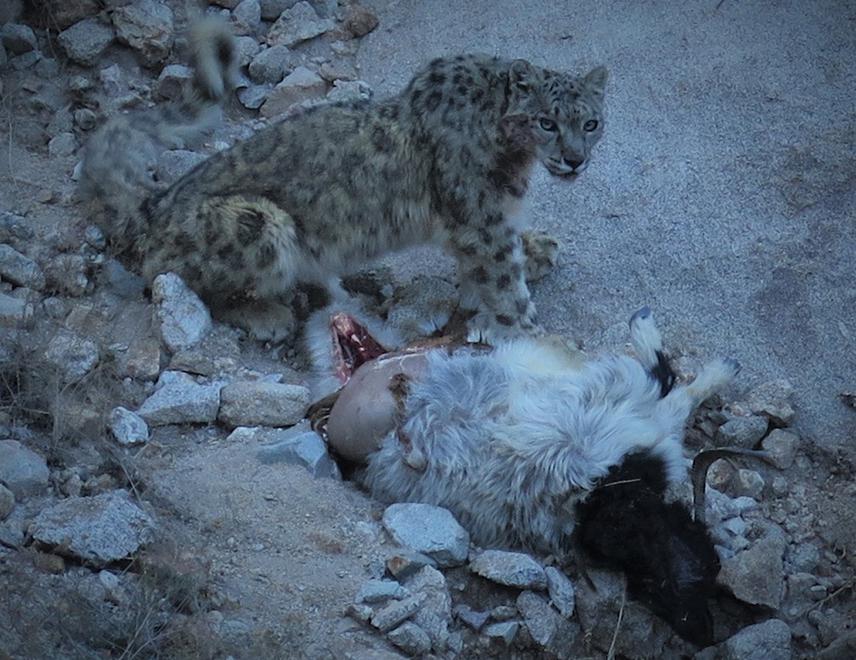Jigmet Dadul
The aim of this project is to develop a local enterprise that will promote traditional woollen handicrafts in Tangyar. The goal is to add value to the livestock that will provide wool to develop these traditional handicraft. By mean of introducing new products with traditional design and by assisting villager to develop high quality finished products and marketing them, this project will ensure conservation of Snow Leopard in high livestock predation areas.

Snow leopard attacks on domestic livestock were recorded during this period in Tarchit
Since 2003, Jigmet Dadul with Snow Leopard Conservancy – India Trust has worked with communities in Ladakh to reduce conflicts with wild predators mainly Snow Leopards. Besides reducing livestock losses by redesigning livestock enclosures, among the most successful models has been a livelihood approach, by developing environmentally and culturally sound homestay programmes along popular trekking routes.
In areas, where tourists have not reached, and where human-wildlife conflicts is severe, the potential for bringing conservation-based livelihoods remains high on the list. The aim is to develop woollen handicraft enterprises in remote villages using the wools from yak, sheep, and goats -- thereby adding value to the very livestock which are at the heart of the conflict.
Assistance will be made with the explicit agreement that communities will protect predators, thus enabling us to brand the products as “predator-friendly wool,” tagged with a logo and short description of the concept. In the souvenir shops of Leh, the parachute cafes of Hemis National Park, and the resorts and guesthouses of Nubra Valley, these products will stand out among the others to tell a living story about the conservation of Ladakh’s natural and cultural heritage. In the village of Tangyar, community members will for the first time experience the possibility that living in a high predator area can be an asset, where once it was a liability. A percentage of profit will be set aside by the producers, and used for an environmental project benefiting the entire community, such as a community-based livestock insurance programme, thus building wide support and sustainability into this incentive-based initiative.